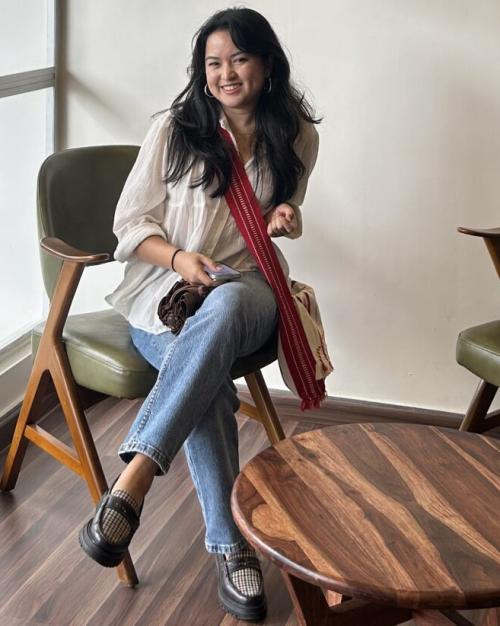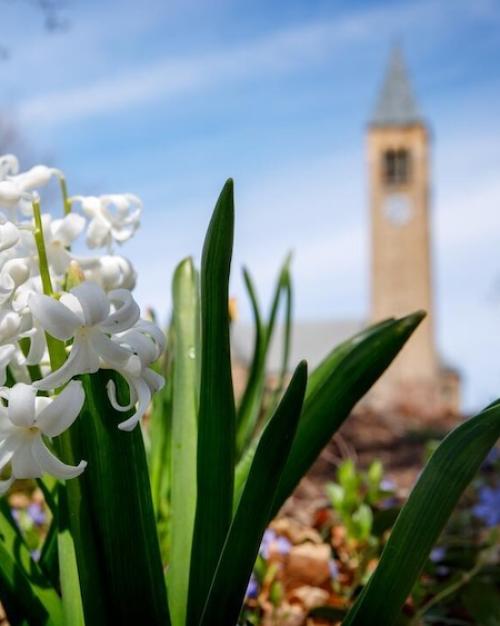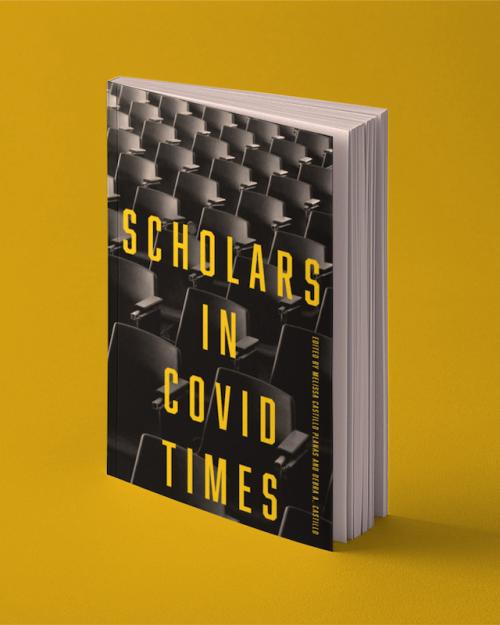Lockdowns, cancellations, transitions to online learning: the COVID-19 pandemic disrupted higher education when it spread worldwide in 2020. Three years later, teaching and research continue to be immensely different from pre-pandemic times, according to scholar Debra Castillo.
“We knew COVID-19 was causing major stress for faculty and students, major fractures in our students’ learning, major challenges in continuing to think about how to engage actively with communities,” said Castillo, the Stephen H. Weiss Presidential Fellow and Emerson Hinchliff Professor of Hispanic Studies in the College of Arts and Sciences. “What we did not imagine or suspect was how dramatically the pandemic continues to affect our classrooms and our communities.”
Castillo documents this extended shift in “Scholars in COVID Times,” a volume she co-edited with Melissa Castillo Planas, associate professor of English at Lehman College, CUNY. The book, part of the Cornell University Press series Publicly Engaged Scholars: Identities, Purposes, Practices, brings together a range of texts, from research-based studies to self-reflective essays, reexamining what it means to be a publicly-engaged scholar in the era of COVID-19.
More than 20 scholars from diverse fields contributed, including Cornell alumni Alicia Muñoz, Ph.D. ’09 (Romance studies) and Elaigwu Ameh, Ph.D. ’20 (performing and media arts).
“There’s been a lot of focus on pedagogy, on moving online, on pedagogical innovations, but as scholars, we’re more than that,” Castillo Planas said. “I’m particularly interested in publicly engaged work, how we engage with communities. What happens when that type of work is shut down? Some things don’t work over Zoom, especially if you work with marginalized populations.”
The College of Arts and Sciences spoke with the co-editors about the book.
Question: What lasting changes has COVID-19 brought to your scholarship and classrooms?
We now have more options for innovative practices learned during the scramble to develop techniques for effective online instruction, including a wide range and variety of uses of media support. The mandatory quarantines of COVID also taught us that in general we should not ask students to come to class sick, a real change from the traditional attendance requirements, and one that means we need to be highly flexible in meeting students’ needs.
With technology we can teach from anywhere and learn from anywhere, but there’s a lot lost as well. It’s important to recognize there are some great things we can do, but there’s a lot to be said about being able to stand with someone and experience the same thing in the same room at the same moment. So, while it’s important to recognize where technology is helpful and increases accessibility, like zoom office hours, we must insist on the power and importance of building communities of trust, in both classroom teaching and community work, that is done best in person.
Q: Why did you dedicate a section of the book, “Losses and Disappointments,” to grieving opportunities lost to lockdowns?
The rush to normalcy has meant we have not grieved what we lost, including faculty and students who died from the virus. We also lost students who left for financial reasons and have never made their way back. Pedagogically, we are still building back from learning losses as well as emergency institutional decisions made during quarantine without faculty input that have remained as policy.
We pretend to be "back to normal" but actually aren't. That rush to get back to normal without out reflection means much of the "new normal" is not always the best version of higher ed.
Q: Why is this a timely book?
While many of the early books that came out in the first months of the COVID crisis, in 2020 and 2021, spoke to the urgency of the situation from the very midst of living it, the longer timeline on this book gave our authors a space for reflection and more considered development.
COVID-19 was not just a three year pause in business as usual, but a real shake up in higher education, and the effects continue to reverberate.
Other than the recentness of the quarantine, the pandemic has really emphasized how interconnected we are. We wish academia in the U.S. had a more global perspective and that conversations flowed more freely across borders – across disciplines, across countries, across continents. For this reason, much of our work has strived to create dialogue between different disciplines, academic settings and bring together distinct perspectives as an opportunity to deepen our own thinking about topics. This can definitely be seen in this volume.




